Aziz Akhannouch, la principal alternativa de Gobierno a los islamistas del PJD

With less than 24 hours to go before Morocco's triple election, no one dares to make predictions about the outcome of the polls. The focus will be on the parliamentary elections, a terrain plagued by unknowns in the absence of polls or surveys capable of predicting the post-election scenario. A priori, the North African country will once again have a coalition government similar to the current one, with the Islamists at the head, although the quotas of power within the executive may vary.
The head of the agriculture portfolio, Aziz Akhannouch, will try to fish for a good result in troubled waters after 14 years at the helm of the ministry and in the face of the erosion of the Justice and Development Party (PJD), whose candidate, Saaeddine Othmani, has held the post of prime minister since 2017. Akhannouch (Tafraout, 1961) will compete with his current partner in government as secretary general of the National Rally of Independents (RNI), a force that, after coming fourth in 2016, is now emerging as the main alternative.
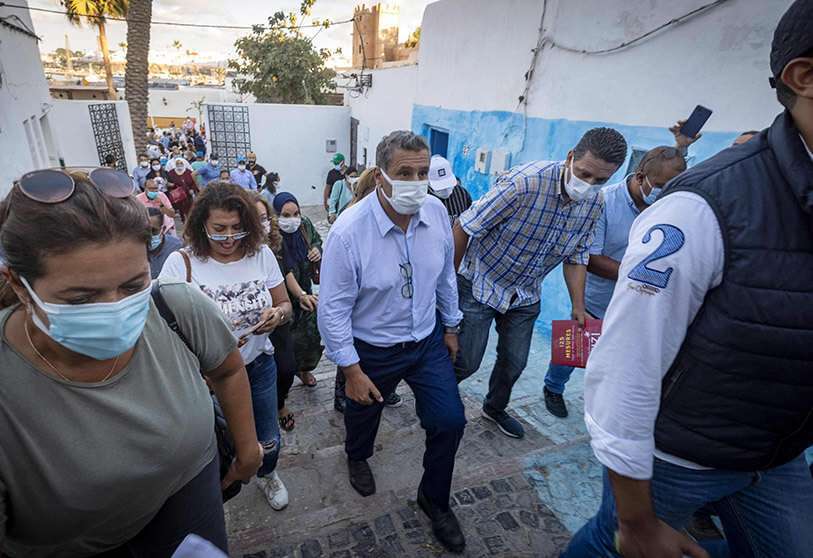
After the constitutional reform of 2011, the Islamist party has been in power uninterruptedly, backed by two electoral processes, leaving Akhannouch's party behind. In the 2011 elections, the RNI was the third most voted force in the country with a total of 52 seats, but fell to fourth place after the last parliamentary elections, where it won only 37 of the 395 seats in the House of Representatives, far behind the PJD, which won 125.
The charismatic leader of the Islamists, Abdelilah Benkirane, emerged stronger from the polls in those elections, but he needed to forge alliances with other political forces to achieve a parliamentary majority and form a government. Akhannouch made the most of the situation and, after a political battle that lasted five months, revalidated his position in the executive and assumed the additional powers of Rural Development, Water and Forestry, a range of power that would allow him to be decisive in the major infrastructure projects planned.
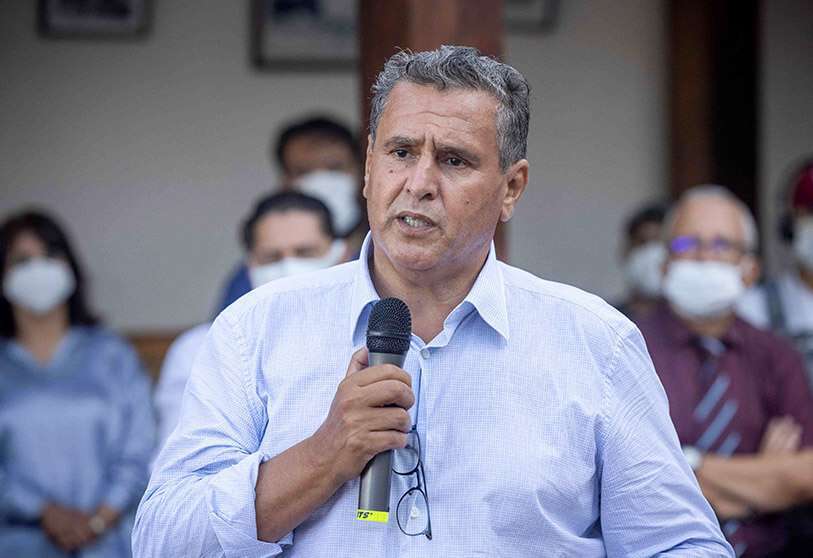
Akhannouch would then receive the backing of the monarch, Mohammed VI. The Moroccan king used his constitutional powers to dismiss Benkirane during the negotiations, citing an institutional blockage caused by the Islamist, who did not agree to incorporate two parties into his government at Akhannouch's proposal. At the same time, Mohammed VI appointed his second-in-command, Saaeddine Othmani, as his successor. A successor who accepted the monarch's premises and diluted the power of the PJD, which now holds only 11 of the 37 ministerial portfolios.
Akhannouch has approached the campaign with one main objective: to establish himself as the only solid alternative to the PJD. The Islamist party faces serious internal and external erosion as a result of some of the decisions taken during the last legislature, an erosion that the RNI has tried to exploit at all costs: "I am by no means saying that I or the party are sure of success. But we are aiming for victory and we are putting all our energy into it," Akhannouch told Jeune Afrique.
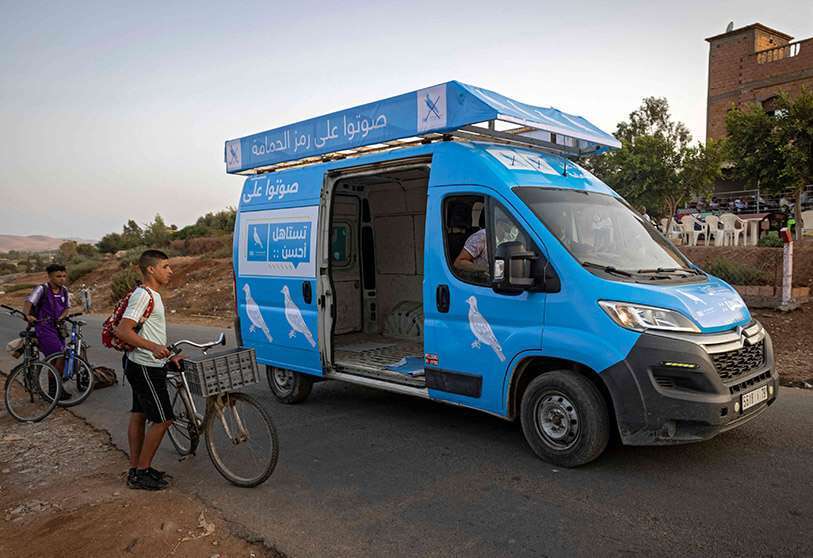
Benkirane, who is active on social media, on Sunday blasted the RNI leader: "The presidency of the government needs a political personality of integrity around whom there is no suspicion". The Islamist's accusations add to the perception of a part of the electorate that doubts Akhannouch's status. The Berber businessman is Morocco's second richest man with a fortune of close to $2 billion, according to Forbes, and is a figure close to the Royal House.
The 60-year-old Casablanca-based tycoon is CEO of the conglomerate Akwa Group, a company inherited from his father, who maintained contacts in the upper echelons of power in Morocco. The company is active in the oil and gas industry, telecommunications, tourism, hotels and real estate. Akhannouch also owns more than 500 service stations across the country under the Afriquia brand. A CV he has combined with his public positions for which he has not received remuneration 'motu proprio'.
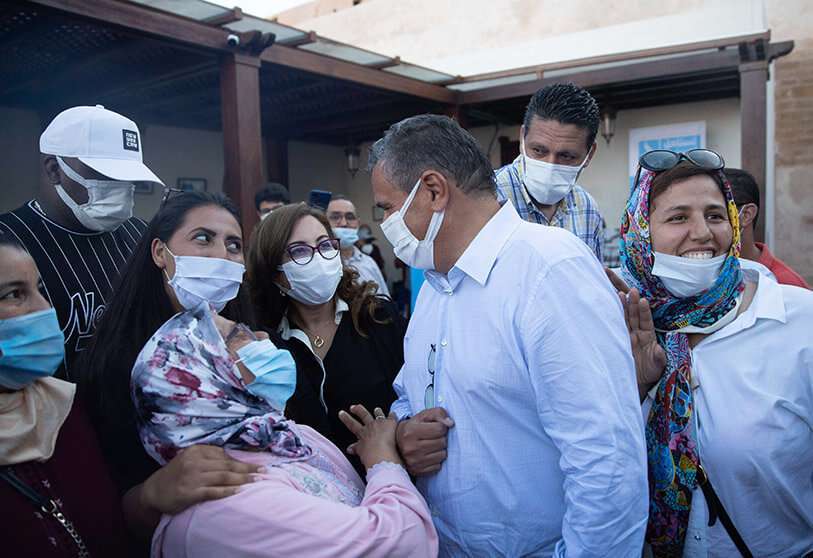
A graduate in Administration and Finance from the Canadian University of Sherbrook, Akhannouch was appointed Minister of Economy in 2013 at the request of Mohamed VI, just three years before returning to party politics at the head of the RNI. The businessman is married to a businesswoman, Salwa Idrissi, who owns several franchises of the Gap, Gucci and Ralph Lauren brands in Morocco. Today, his aspiration is to win the elections.
The third time could be the charm. The RNI's campaign, although mitigated by the epidemiological situation and transferred to the virtual stage, has tried to leave behind its links with the establishment and seduce the disgruntled electorate. To do so, the party has abandoned the centre-right label and tended towards social democratic positions. Its electoral proposals include a strengthening of social policies, such as the creation of a living wage for pensioners and universal health coverage for all Moroccans, as well as a series of birth policies.
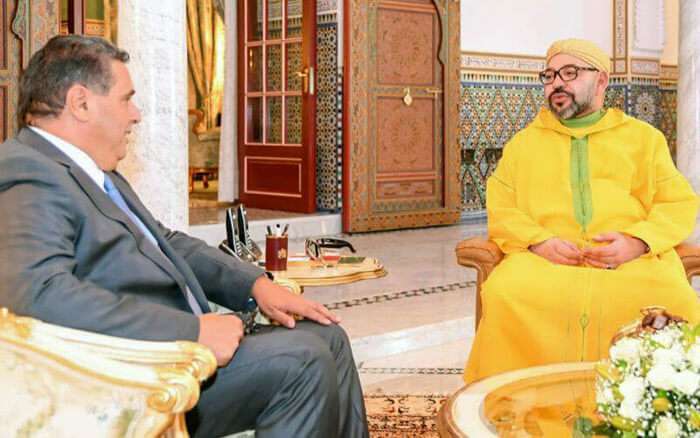
Despite the recent diplomatic clash with Spain, the tycoon's relationship with Madrid has been positive. In fact, the Partido Popular government decorated Akhannouch with the Gran Cruz de la Orden Civil del Mérito Agrario y Pesquero (Grand Cross of the Civil Order of Agricultural and Fishing Merit), the highest award in the agri-food sector. The reason was his "decisive contribution" to the signing of the Fisheries Agreement between the EU and Morocco. A record of services that endorses his candidacy.








